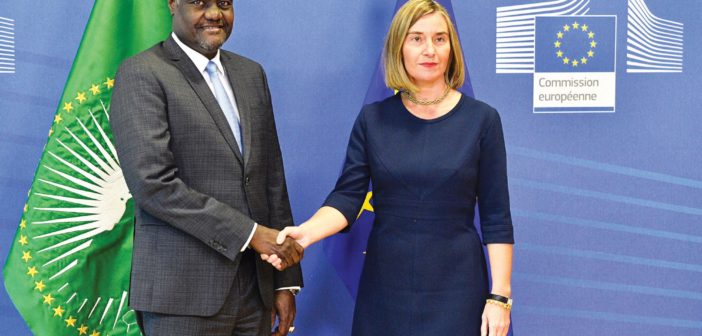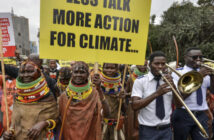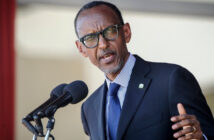A number of broad issues including migration, security, peace, jobs, investment, trade, governance and climate change will be discussed at the two-day 5th African Union – European Union (AU-EU) summit in Abidjan, Côte d’Ivoire on November 29-30. The event is expected to have in attendance some 55 African leaders, along with 27 EU member states representatives.
Today, the 6th EU-Africa business forum commenced in the Ivorien capital, Abidjan. The EU and its member states are the number one contributor to promote development, stability, and peace in Africa: €21 billion development aid was provided to Africa in 2016 by the EU and its member states, the largest aid donors on the continent; €32 billion was invested in Africa by EU companies in 2015, accounting for around one third of the overall foreign direct investment in Africa; €3.35 billion is allocated to the European fund for sustainable development, which should trigger up to €44 billion of investments;
7 civilian and military missions are deployed across Africa; €1.4 billion is committed to educational programmes in Africa from 2014 to 2020.
In 2014, the fourth AU-EU summit brought together more than 60 EU and African leaders to discuss the future of EU-Africa relations and reinforce links between the two continents. African countries and the EU cooperate through multiple frameworks such as the Cotonou agreement and the joint Africa-EU strategy.
The Cotonou agreement is the overarching framework for EU relations with African, Caribbean, and Pacific (ACP) countries. It covers the EU’s relations with 79 countries, including 48 countries in Sub-Saharan Africa.
The joint Africa-EU strategy was adopted in 2007 as the formal channel for EU relations with African countries. This strategy, which was agreed by the African Union and EU institutions, as well as by African and EU countries, is implemented through periodical action plans. In 2014, EU and African countries agreed on the roadmap for 2014-2017.
On May 4, 2017, the High Representative and the Commission issued a joint communication for a renewed impetus of the Africa-EU Partnership. The Foreign Affairs Council welcomed the joint communication at its meeting on May 15, 2017.
In addition to these frameworks, the Council has adopted three regional strategies for the: Horn of Africa, Gulf of Guinea, Sahel, Africa-EU relations also takes place through formal dialogues, such as the EU-Africa summits.
Trade
The EU has negotiated a series of economic partnership agreements (EPAs) with 48 countries from Sub-Saharan Africa, as part of the Cotonou agreement. These agreements aim to create a shared trade and development partnership backed up by development support. The EU finances development programmes and initiatives benefiting multiple countries across Africa. Most of the funding comes from the European development fund (EDF), which has a budget of €30.5 billion for the period 2014-2020.
Security
The EU has launched several militaries and civilian missions and operations in Africa, as part of the Common Security and Defence Policy (CSDP).
EU missions are currently deployed in: the Central African Republic, Libya, Mali, Niger, and Somalia.
Migration
In November 2015, the EU and the African leaders most concerned agreed on the Valetta action plan. This comprises 16 concrete actions to address the mass influx of migrants coming to Europe. In June 2016, the European Council agreed to deepen cooperation with key countries of origin and transit. Compacts tailored to the needs of each country are being put in place. In February 2017, EU leaders adopted the Malta declaration setting out their intention to increase cooperation with Libya, which is the main country of departure towards Europe.
Counter-terrorism
The EU supports counter-terrorism initiatives and activities on the African continent. In June 2017, the EU committed to providing €50 million to support the newly established G5 Sahel Joint Force in order to improve security in the region. In 2013, the EU adopted an action plan on counter-terrorism for the Horn of Africa and Yemen.




